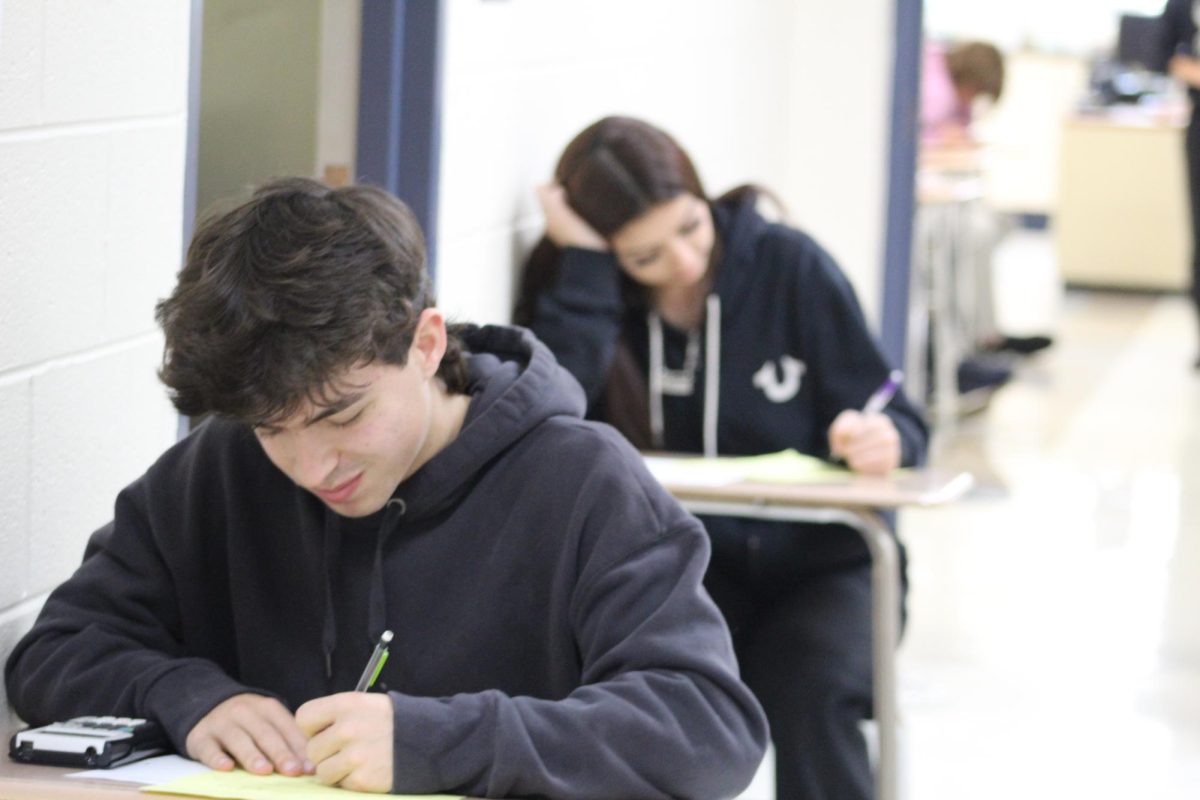Tell us what YOU think about discipline at RB. Take our survey!
RB has been operating under a revised tardy policy since the beginning of the second semester. The policy has become the talk of the students, as well as the staff at RB. The policy was reconfigured by Interim Assistant Principal Troy Gobble, Interim Principal Tim Scanlon, Assistant Principal John Passarella, and Dean David Sibley after many teachers showed concern with the issue.
The tardy policy is not entirely new. According to Sbley, “it’s the old policy, with some tweaks.” One of those tweaks is a renewed emphasis on consistent enforcement of the policy by staff and teachers. Teachers are also now required to call a student’s parent or guardian if they have received three tardies. A guideline has been established for the new punishments, including a Saturday detention after the fourth tardy, and an ADA (alternative daily assignment) after the sixth.
Another change to the policy is that tardies are being responded to more quickly than before. Students are now likely to be called down to the office the same day they receive a number of tardies.
To explain the reason for the changes, Gobble said, “What we found was that the policy had become difficult to enforce consistently, and for good reasons. Students and teachers were adjusting to a new building and nobody knew where they were going, and also teachers were just getting used to using Skyward. As a result, tardies became more frequent than they were in the past. Students were coming late to class because the policy felt undefined. Now that it has been tightened up, the number of tardies has dropped significantly.”
Sibley agreed and said, “it’s getting better. Once kids started realizing they were getting ADA’s for tardies, they were more motivated to get to class on time. The teachers are doing a great job enforcing [the policy], and are really making a difference.” Sibley feels that the vast majority of the teachers are cooperating with the new policy.
Gobble noted that the biggest problem had been first period. He said, “[There were] as many tardies to that period alone as the amount of tardies to any period for the remainder of the day. My first thought was maybe the students were just having trouble getting to school, but we found that was not the problem. We got a map of the school district, and plotted on the map the homes of the students late to first period, and found that there were just as many tardy students from the Hollywood area as there were Broadview and North Riverside.”
Gobble also said there was a day where staff members were posted at each door of the school to count the number of students coming in after the bell rang. They ended up counting 20 students that arrived to school late, but received 50 students tardy to first period that day, leading them to believe the other 30 students were in the building on time but still arriving late to class.
“I think it’s just the high school culture that the morning is the time for students to socialize with their friends,” said Gobble.
Social science teacher John Fields served on this year’s discipline committee. Fields, as well as a number of teachers from RB on the committee, were given the task of compiling a survey for the rest of the teachers about discipline at RB.
“[The survey] gauged how teachers felt about certain issues” said Fields.
Several of the questions on the ten question survey asked about tardiness and attendance.
“I have not yet analyzed the results,” said Fields, “but I think it’s always good to evaluate how things are going.”
The new attention to attendance and tardies has resulted in other changes. Attendance is now posted live on Skyward, so parents can check to see if their student is in class at any point during the school day.
Spanish teacher Jenna Passananti said, “[The new policy] has helped tremendously. In my classes [tardiness] has improved, and the kids are seeing it as more of a priority to get to class on time and are realizing that those two to three minutes in the beginning of class are still part of class. This policy allows the teachers to find their own tardy policy with in their classroom, and if it gets out of control, we have a uniform school policy to fall back on. It really bothered me when students didn’t get to class on time. Any improvement helps.”
Social Studies teacher Dan Monahan has his own views on the policy. He said, “Until there are no tardies, it’s not harsh enough. In my classes personally, I’ve noticed a slight improvement. We’ll analyze the data at the end and see if it has improved.” Monahan said he noticed “no change in behavior from the students,” and still notices kids in the halls after the bell rings.
Monahan also said, “My personal belief is that the punishment doesn’t need to be more or less, but that it needs to be different. I don’t feel that students care about getting detentions, or that they change the student’s behavior at all. If it’s not uncomfortable enough to get the students to stop, then it should be changed.” He suggested that the school should seek alternate consequences for tardies, such as revoking parking permits, or participation in Sixth Man and other school events.
English teacher Sarah Johnson said, “If we aren’t all on board it doesn’t work. Any policy is only as strong as the people adhering to it.”
Many of the students at RB don’t feel as optimistic about the policy, noting flaws with the policy’s structure.
Junior Kylin Collier said, “It’s too ridiculous because the school can’t expect a student to be on time to every class if they have seven classes every day. When they keep handing out detentions it just frustrates the students and takes away from the learning. There are still people tardy every single day.”
Junior Watoris Slater said, “If you’re one minute late, then you may as well just skip the class because you’re going to get a detention anyway.”
Junior Brendan Mortimer said, “It doesn’t work because it doesn’t get enforced right. The teachers play favorites, kids that the teachers like never get marked tardy, but the kids they don’t like always get marked tardy.”
Sibley noted how punishments were decided. “We just follow the handbook, and there are certain things we are mandated by the state to do. The state requires us to follow the guidelines set forth by the Board of Education. Don’t be tardy and you won’t have to see me,” he said.








Michele Brown • Mar 18, 2010 at 2:35 pm
The only problem I have with the policy is the in school suspension for the 6th tardy. It is so important to be in class. It is very hard to make up the material you miss.